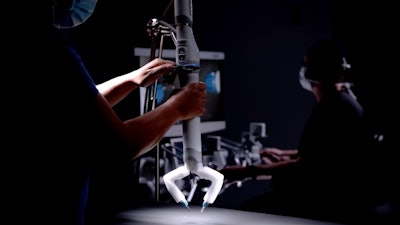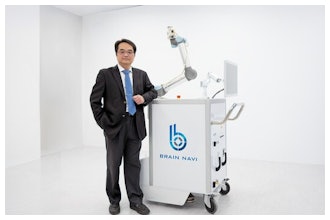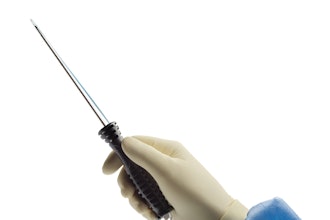
Virtual Incision Corporation, a medical device company spearheading the development of the world’s first miniaturized robotic-assisted surgery (RAS) system, today announced the completion of its U.S. Food and Drug Administration (FDA) Investigational Device Exemption (IDE) clinical study. The study was designed to evaluate the company’s MIRA Surgical System for use in bowel resection procedures. This is an important achievement towards bringing new technologies to hospitals and their surgical robotics programs regardless of the site of care.
The surgical cases were completed at three hospitals across the country. Patients who participated in the study were followed after their procedure to fulfill study requirements. The complete data will be correlated and submitted to the FDA as part of the company’s De Novo request for market authorization. Virtual Incision is the first RAS developer to complete a U.S. IDE study to support a De Novo request in bowel resection.
“The investigators are very encouraged by our experiences trialing the MIRA Surgical System,” said Michael A. Jobst, MD, colorectal surgeon. “Across the sites, we’ve seen MIRA efficiently integrate into existing RAS programs and witnessed how it is mobile enough for use in any operating room. Some sites have even completed multiple cases in a single day. We are eager to fulfill the clinical requirements of the study in hopes that MIRA can help expand RAS access to more patients in the future.”
“Completing MIRA’s IDE clinical study is a critical milestone in our journey to making RAS more accessible,” said John Murphy, president and chief executive officer of Virtual Incision. “Currently, less than 10 percent of the 90,000 operating rooms in the U.S. are equipped with mainframe RAS systems. Beyond the incredible progress of the industry pioneer, it’s still in the early days of the adoption of soft tissue surgical robotics. Our ultimate goal is to develop world-class miniature RAS devices with the required strength and dexterity to enable positive clinical outcomes for a broad range of procedure types.”






















